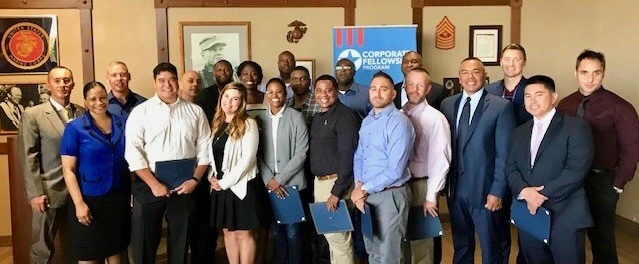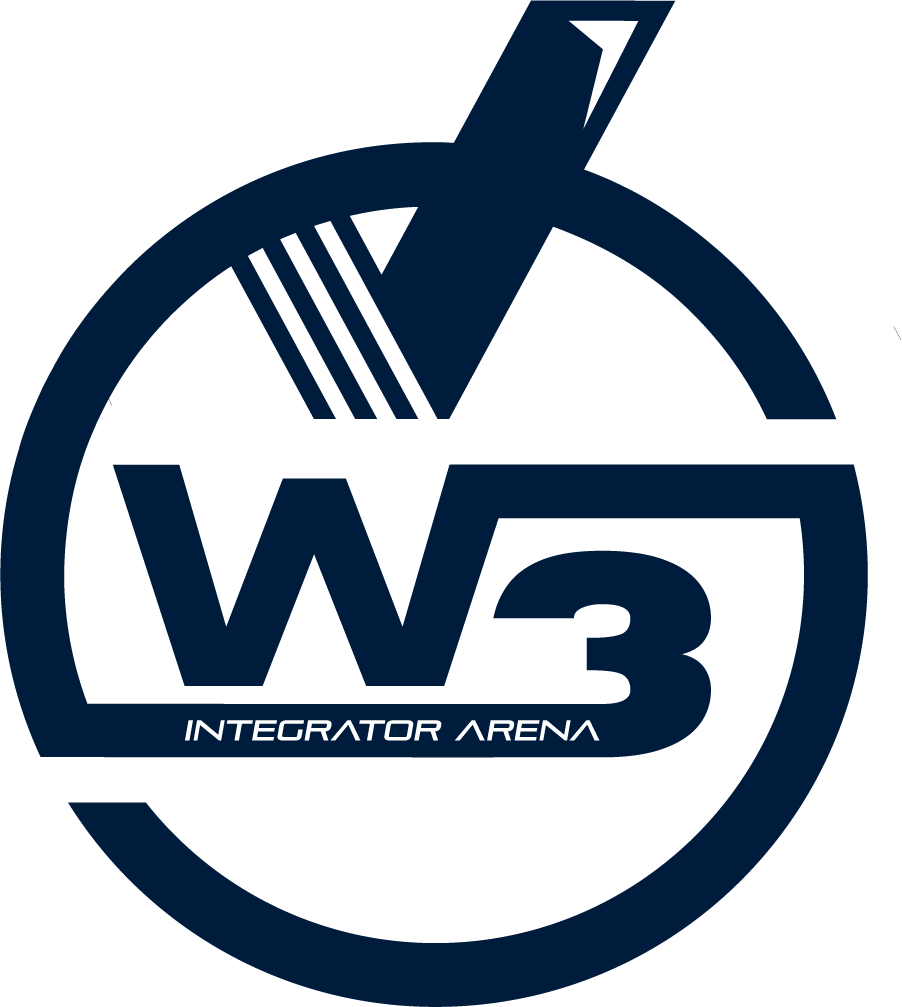
Yesterday, I had the priviledge of addressing the graduating Corporate Fellows from Hiring Our Heroes Cohort 3-18 at Camp Pendleton. I was encouraged to share these comments.
Good morning Fellows and Congratulations on your graduation from the Hiring Our Heroes Corporate Fellowship Program. It is a distinct honor to have the opportunity to speak with you today as we also prepare to celebrate the 243rd Birthday of the Marine Corps on Saturday and to honor the service and sacrifice of all Veterans, past and present, this Sunday.
About 10 years ago, while assigned to support a Marine Corps Reserve detachment, I was–as a major–the senior of three active duty officers living in the entire state of Maine. Our detachment often supported community events and I received a typed request–in the regular mail–to deliver a keynote address to a group of World War II Veterans from the University of Maine’s Class of 1950. I accepted, of course, before going through a moment of complete regret and panic at what I’d signed up for. After all, until that moment, I only ever tried to learn from our Greatest Generation and had no idea what valuable ideas I could impart. Once I took a breath, and after a little audience analysis, I landed on something that I had personal experience with that they may not, our newest generation of Veterans.
What I offered, seasoned with the still fresh salt of a couple of Iraq–as well as couple of pre 9/11–deployments, was how our newest generation of Veterans would not only carry on the Greatest Generation’s legacy on the battlefield but also in the classroom–using the G.I. Bill as they did–and in every climb and place within our Nation’s public and private institutions and marketplaces. I offered that while smaller in numbers, our generation of Veterans would be highly influential and unmistakably impactful. Perhaps my suggestion that America’s Next Greatest Generation was in the making was an overreach–or overstated–but I believed it to be true and this Class of 1950 World War II Veterans agreed and even asked me back the following year.
Today, 10 years later–and four years after my own transition from active duty–it is amazing to see what a diverse and positive impact our fellow Veterans are having across the breadth and depth of our Nation’s economy, academia, government, and even entertainment. As our country grows increasingly polarized and such a small percentage of our population has served in uniform, I remain convinced that our generation of Veterans will help our Nation repair relationships, restore civility, and ensure prosperity well into the future.
Today, as each of you prepares to join the ranks of post-service Veterans, know that you are well supported and have more opportunity, resources, and accelerated growth potential than during any other period in our history. And while real–and serious–challenges remain within our Veteran populations, we collectively have the ability, initiative, drive, and teamwork to discover solutions and ensure success.
For the past twelve weeks, as part of the Corporate Fellowship Program, you’ve had the opportunity to test drive a company, an occupation, an industry and you’ve gathered data on whether it might be a fit for you, whether it matched your expectations, and whether it fits your idea of what you should be doing next. For twelve weeks, you’ve studied the transition process, honed your professional skillsets, listened to guest speakers and toured dynamic companies. And, for the past twelve weeks, you’ve developed new bonds with your fellow Veterans in this cohort and with a new group of allies, your civilian co-workers and professional colleagues that make up our vibrant local community. You’ve learned to network, both digitally, and in person, and you are better prepared for your transition today than I was four years ago and, in fact, better prepared than most Veterans ever are for taking this next step.
You are ready for this transition and, frankly, the last thing you need is more recycled conventional wisdom from a guy like me… so as, with the University of Maine’s Class of 1950 Veterans, I’ll do my best to offer you something unique which you might not have heard already although, I freely admit, this might be the “worst, best advice you’ll ever get,” so you may want to take it with a grain of salt.
My first piece of advice is to “Break the Rules.” Just make sure they are the right ones and for the right reasons. While I am not advising professional anarchy, you know when the tried and true methods aren’t working, or aren’t working for you, and you shouldn’t shy away from trying something new that you think is right. Personally, I threw out my initial one and two page resumes for a longer, narrative version that more fully tells my professional story in a manner that can be understood by anybody that takes the time to read it — which I’ve learned how encourage others to do. I also balk at the often repeated suggestion that I shouldn’t refer to myself as “a Retired Marine” because others will assume that I’m no longer in my prime.
Which brings me to my second piece of advice, “Develop your personal brand”. The brand of “Brian Wirtz” draws heavily on my twenty plus years of service as a Marine and there is no more concise way to articulate that experience than to say “retired.” My choice to violate this rule of conventional wisdom means my branding needs to compensate for any natural tendency some may have to associate the word “retired” with unproductive. Fortunately, over the past four years as I’ve developed my personal brand as an aspiring Veteran entrepreneur with expertise in talent acquisition and organizational development, one problem I haven’t run into is being considered unproductive. If that were an issue, I’d have bigger problems than what people think of the word retired. As you consider your personal brand, think of what you want to be known as, what makes you uniquely you and uniquely valuable. Focus your energy cultivating your brand in how you present yourself in person and digitally and hone it over time based on your growing experiences and accomplishments.
This leads me to my next point which is “Never Stop Transitioning.” Whether your transitions are professional or personal in nature you have been specially cultivated to accomplish missions, advance in responsibility and authority, and adapt to new environments. While the civilian workplace brings new challenges, you will find comfort and reward in continuing to set new goals and achieving what may have once felt out of reach. While today’s Veterans are surrounded by professional resources and shouldn’t hesitate to use them, you are your own new career counselor, monitor or detailer. There are no right answers when it comes salary versus opportunity, tenure versus career growth, or any other professional decision you will face. You write the rules of what your career path should look like and why. Seek guidance, then trust yourself.
On that note, I have just one final bit of advice, “Relax and Have Fun.” Two distinct, yet equally important instructions. While I’d like to think I’ve always known how to have fun, like many of us, it took me a while to understand just how to “chill out” and enjoy my professional journey. I can’t tell you how to relax but will offer that since I’ve learned to do so, I’ve found my daily work, and life in general, to be more rewarding and carefree which is a continuous process improvement goal I enthusiastically pursue.
As I wish you a final congratulations on your graduation from the Corporate Fellowship Program and your upcoming transition from active duty I want to Thank You for your Service and remind you that you belong to a generation of disruptors so don’t be afraid to “Bet on Yourself” and “Make Big Things Happen.” You are part of America’s Next Greatest Generation of Veterans. Congratulations to you all and Happy Birthday Marines!

